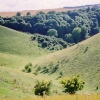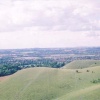Please login or click here to join.
Forgot Password? Click Here to reset pasword
 |  |  |  |  |  |
| Vince Hawthorn Posts: 12758 Joined: 19th Apr 2010 Location: UK | quotePosted at 22:12 on 14th April 2013 Ken, you have already made one very important move in an effort to improve your skills, since joining POE I like to think that my efforts have got a tad better. Number one, your enthusiam is lifted greatly and getting out there with your camera you will only get you better at seeing the shot. Secondly as all above have made comments to help this only shows that the folk here on POE are always ready to help eachother. As for what camera that is down to what one can afford and what is comfortable to use, I am sure I would be lost with an all singing big time camera, just as good a quality as you can with a decent lens then all that is left is the eye, use the pics here on POE to see what is good and work with that knowledge to build what shots appeal to you. Of course there is always luck , being there at the right time - so always, always have a camera with you whenever you can. For instance POE pi id no. 1171389 is a shot I only got as I had a compact withme at the time, the next day when I passed it had gone. Have camera will travel, go for it Ken ! |
| Ken Marshall Posts: 804 Joined: 20th Jun 2012 Location: Australia | quotePosted at 23:02 on 14th April 2013 Yes Martin, planning the shot is very important .I was in a tour group in Italy and there was a fellow tourist who took better photos than the rest of us.He had a Nikon camera with an expensive telephoto lens.He always walked to the best position to take the shot.He took the time to think and compose the shot. Edited by: Ken Marshall at:15th April 2013 01:03 |
| Edward Lever Posts: 734 Joined: 22nd Dec 2005 Location: UK | quotePosted at 23:18 on 14th April 2013 I agree with Vince's thoughts there, whenever possible have a camera with you. Whatever camera you use, it is being there at the right time with the camera, any camera, for the shot. The lighting (angle and the quality of the light) can transform an outdoor scene from something drab to something quite interesting in the space of a few minutes. Here in the UK, the weather and light can change very quickly, and on quite a few occasions I have regretted not having a camera with me to capture the scene. Conditions may be less variable in Australia perhaps, although the same principle applies. Everyone has given excellent advice. The classic rules of composition work well with landscapes, and are a safe option, but sometimes a good shot comes from breaking the rules, so don't be afraid to experiment with exposure and angle of view. |
| jc Posts: 392 Joined: 5th Jun 2010 Location: USA | quotePosted at 03:28 on 15th April 2013 Good Evening! Best way of photographery is study the desination (example clearance woods) to see the sightful birds and flowers! To walk and just study the point of desination! (While) Enjoy the day / night! Julia |
| Ken Marshall Posts: 804 Joined: 20th Jun 2012 Location: Australia | quotePosted at 04:58 on 30th May 2013 Professional photographers have uploaded free lectures about better photography on YouTube.com . |
| Rod Burkey Posts: 554 Joined: 2nd Sep 2008 Location: UK | quotePosted at 09:20 on 30th May 2013 Outdoor photography is a fine way to improve skills. Buying the most expensive camera you can afford lays a little too much emphasis on the tool. I doubt if artists and sculptors gather in earnest groups debating which brushes, chisels and mallets will turn them into better artists. That is a bit simplistic, but amateur photographers tend to get bogged down with equipment issues. I would suggest settling on a budget that will allow you to include a couple of lenses if the camera is capable of taking them, and then buy some software to help provide you with improved images. Photoshop Elements is incredible value. Many professionals use tripods. They don’t do that for fun. To the photography next, which is what the original question revolved around and the crux of the matter. We should look at newspapers and magazines, and cast a critical eye over the work of those who earn their living behind a lens. Then, choose the ones which shout out to you in terms of appeal. Subconsciously, a trend will emerge reflecting your taste and this may become the basis of your own unique style. We all attempt, once past “first base” to produce images with impact and individuality. I would urge people not to show all their pictures to others, as this shows a lack of basic manners and boredom will soon cause droopy eyelids. This is well illustrated sometimes in POE when “Henry Grunge of Much Binding on the Marsh” submits 30 odd pictures, probably having only given them a cursory glance himself. Don’t do that! In 30 pictures taken of a subject, show only one or two of the very best, post editing and viewed a few times. If you can’t be bothered to do this, when why should others? Photography workshops are great fun as they get everyone to take photographs and then hopefully review the results. Taking lots of photographs helps develop the style and hones the skills. Be your own most severe critic. Learn from the work of others, and enjoy it all and try not to take yourself too seriously. A professional photographer friend of mine said once that Photography / Camera clubs are places where amateurs teach each other their bad habits. A bit severe but my own experiences have lead me to the conclusion that the “club life” is not really for me. However, I do go to the club exhibitions and see some great work. For me, photography is a bit like ploughing a lone furrow, and yes I suppose I’ve well and truly learnt some really bad habits all by myself. I love going to professional photographic exhibitions here in Liverpool, Manchester and Salford. I have admired the work of the master photographers and just hope that these images have been a practical inspiration. To summarize my views on improving. 1. Take many photographs and be a ruthless critic, deleting all but the best. 2. Go to photographic courses on technique and post editing. 3. Go to photographic workshops. 3. Go to exhibitions. 4. Look at photographs in the press and other media. 5. Don’t get too hung up on equipment, but do buy a camera that has manual settings. 6. Remember that the quality of the image is due to correct exposure and the lens. 7. Enjoy the pleasure of outdoor photography and take your time. Go back to locations again if the light is in the wrong direction. 8. Your own style will emerge. Do your own thing, taking subjects that you find interesting as your image will be unique. 9. Don’t take yourself too seriously. It’s not worth it, but do work hard and the results will come.
|
| Rod Burkey Posts: 554 Joined: 2nd Sep 2008 Location: UK | quotePosted at 17:16 on 1st June 2013 I should have added the best advice of all, and that is to look at the Favourite Pictures section in POE. These have been chosen and it's a great place to stary looking at fine "outdoor photography". Edited by: Rod Burkey at:2nd June 2013 12:28 |
| Dave John Posts: 22335 Joined: 27th Feb 2011 Location: England | quotePosted at 18:43 on 1st June 2013 Some really excellent advice there Rod. Completely agree with taking plenty shots, afterall once you have bought your memory cards thats it, not like when we had to buy roll after roll of film.....and being ruthless with your editing. As far as equipment goes I would always advocate buying the best lens you can afford as it is the lens that produces what you actually see......your camera settings get the expoure and such correct but the lesn produces the quality. And I am very much with Rod regarding 'camera clubs and photographic societies' in my experience they are usually inhabited by people who are more interested in the equipment then the end result......definitely not for me...... but each to their own. Get out and take pictures, look at the work of others and try to work out what it is that make a particular image successful. And most certainly agree with point 9 ....... Don't take yourself too seriously......be enthusiatic, yes. but enjoy taking the pictures and if they don't work don't worry, try to identify what you could have done differnently and try again..... If I could add a point 10 it would be.... Make sure you have spare memory cards with you, they are relatively cheap now, thus enabling you to shoot many images of the subject from varying angles. You will be amazed how a slightly different angle can change an image. But above all ENJOY IT |
| Vince Hawthorn Posts: 12758 Joined: 19th Apr 2010 Location: UK | quotePosted at 21:21 on 3rd June 2013 I have another small thing to add to the list for photography outdoors. If you want to include wildlife in your shots you are going to need another item in your ki-bag-- PATIENCE !! If you look at my recent shots of the woodpeckers, these were not a case of seeing the nest and catching a good shot and being on me way. I came accross the nest by accident whilst out on a bike ride, thought this could be good and waited and waited waited. The parent kept coming to the nest and landed on the other side of the tree trunk and poked it's head round and seemed to think "oh he's still there" and off again. Well Ithought I must try again and back I went this last weekend and stood there for over twenty minutes pointing the dslr this time with a telephoto lens pointing in the right direction, arms aching but then it was feeding time and you can see the result. The pics are not as crisp sharp as I would like but the scene is there to see, as Dave commented go for the best you can afford particularly with the lens. I was using my old 75-300mm from my old film dslr and it is only a kit lens going back to the days before stabiisation was the norm in a lens, so best job only with regard to equipment but definately PATIENCE. |
| Dave John Posts: 22335 Joined: 27th Feb 2011 Location: England | quotePosted at 07:43 on 4th June 2013 Patience certainly Vince, and having the opportunity to return as you did. Letting wildlife get used to you if possible althoigh not always possible. The squirrels in my garden are getting much more tolerant now, let me with 12 feet before scurrying off. The Woodpecker is still very nervous and clears off almost as soon as she hears me open the door.....and the Jay.....well that is a totally differnet kettle of horses. Flys off as soon it sees me at the window..... As to you aching arms Vince you need to get yourself a monopod and a ball & socket head. You'll pick up a cheapish one for around £30-40 if you shop around. Will make the world of difference to your sharpness and will hardly take up any room when out on the bike or just generally out and about. |